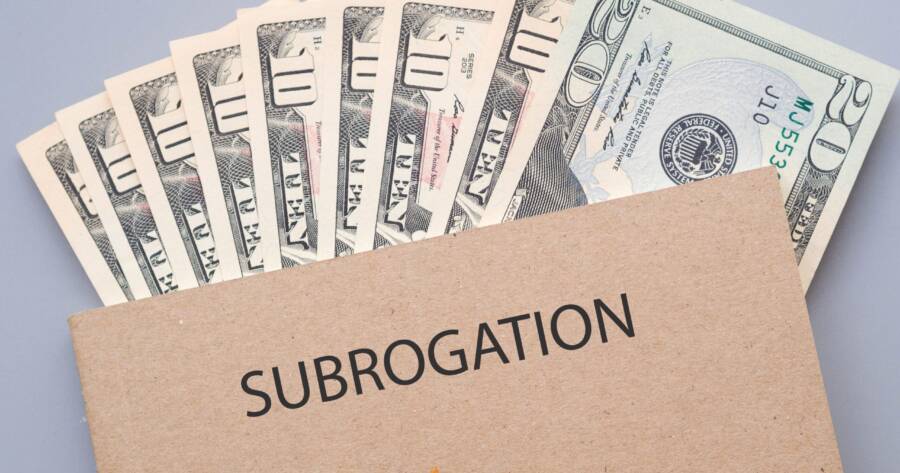It’s all right to admit it: at a glance, the word “subrogation” looks like a frightening work of legalese. While you shouldn’t necessarily be afraid of it, it can have major consequences for either you or your insurance company.
So what is subrogation?
Subrogation is a far-reaching term that applies in a wide range of situations. But put simply, it is the process by which you or your insurance company are repaid by another individual or insurance company. No one wants to pay when they were doing everything they should have been doing. So subrogation means that another party ends up repaying your costs when they were at fault. Here’s a good video explanation, if you need some more information.
Let’s Go Through an Example
The simplest case to look at is a car accident, perhaps one resulting in injuries or property damage.
Say you are out driving, and another driver hits you. Maybe they were intoxicated or on their cell phone. Maybe they ran a stop sign or veered into your lane. The point is that the accident was clearly their fault. Let’s assume that the other driver doesn’t dispute this. At that point, you and your insurance company will need to pay costs like medical bills and car repairs. However, subrogation means everyone involved should get money back from the at-fault driver’s insurance. Other things can complicate this, but that’s all you need to remember for now.
Insurance Company vs. Insurance Company (Usually)
Ideally, you do not need to deal with the subrogation process directly. In the hypothetical car accident we just described, your insurance should deal with the at-fault driver’s insurance. And that makes sense. The last thing you want to do after a traumatic (or even just annoying) experience is deal with tedium. So long as it doesn’t go to court or the at-fault party doesn’t dispute their role, it should be someone else’s problem. Not having to deal with subrogation yourself is part of the package when you pay your car insurance premiums.
However, we know things don’t always work out that smoothly. Sometimes drivers who were at fault insist they were not. Or they try to blame you. Sometimes, it’s legitimately difficult to determine the responsible party. A dispute can muddy the waters fast and leave you with an even bigger headache.
State and Federal Laws
There are some common situations where subrogation can end up hurting you, rather than helping. A claim can turn into a lawsuit very easily. Your health insurance company (or the establishments that treated you) often has the right to claim a portion (or all) of your winnings in a personal injury case to reimburse themselves. Where you live is a big factor in whether it ends up helping or hurting you in a personal injury case. Some state law prohibits this, but federal law does not.
Some insurance companies will have policies about subrogation that you can read before you sign a contract. We hope it never comes up, but it’s a good thing to look for the next time you buy insurance — just so you know where you stand.
But…Is It a Good Thing or a Bad Thing?
Subrogation itself is neither good nor bad. It describes a set of circumstances where money changes hands during an insurance claim or personal injury case. Whether this process is a good or bad thing for you really depends on your situation. If you are in an accident and it’s decided you were the at-fault driver, then subrogation could end up costing you or your insurance company money.
On the flip side, if you are an injured party, then it’s important to remember that federal law allows your insurance companies — usually your medical insurer — to collect from your settlement or court case. This can be devastating if abused, as accidents sometimes result in losses outside of the scope of your medical or auto coverage.
The Bottom Line
Fundamentally (and broadly), subrogation is there to make sure people who need to be paid are paid after a costly accident that was not their fault. In most common cases, it’s a good thing for both you and your insurance companies. In the case of your insurance filing a claim against your settlement, the best thing is to have a personal injury attorney help you through the process. They can negotiate on your behalf, as insurance companies (especially medical) will sometimes waive a part of their claim.
 Shutterstock
Shutterstock







